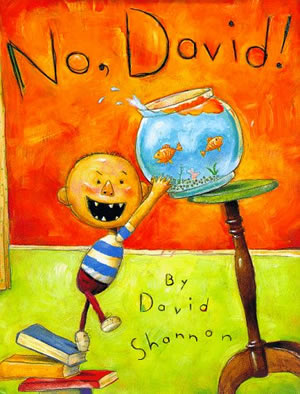 Members of the One and Done club are surrounded by friends with multiples, stressed by social pressure and bombarded with media images of large, happy families. So, it comes as no surprised that many parents of only children worry that their kids will feel deprived, lonely, and/or end up self-centered brats. Well banish those thoughts! I’m here as a parenting coach and parent of a well-adjusted only child to tell you that, if raised by thoughtful, engaged parents, only children turn out to be among the most creative, intellectual, and generous citizens of the planet. Below is a list of concerns many parents have, followed by tips on how to counteract those worries. Next week I will share links and testimonials I’ve gathered from parents of phenomenal only children for further reassure and support.
Members of the One and Done club are surrounded by friends with multiples, stressed by social pressure and bombarded with media images of large, happy families. So, it comes as no surprised that many parents of only children worry that their kids will feel deprived, lonely, and/or end up self-centered brats. Well banish those thoughts! I’m here as a parenting coach and parent of a well-adjusted only child to tell you that, if raised by thoughtful, engaged parents, only children turn out to be among the most creative, intellectual, and generous citizens of the planet. Below is a list of concerns many parents have, followed by tips on how to counteract those worries. Next week I will share links and testimonials I’ve gathered from parents of phenomenal only children for further reassure and support.
They will be lonely:
1) Make sure your only kid does lots of socializing. Schedule play dates, sign them up for enriching classes, get them out and about in the community. But don’t overdo it. Often only children are remarkably self-contained in a good way and thrive with some solitary play time, as independent play fosters greater self-reliance and creativity.
2) As they get older, consider including friends on certain trips and outings. This gives your kid the opportunity to ‘share’ you, to feel what it’s like to not have mommy and/or daddy all to themselves.
3) Most importantly, be playful and available yourself. If you’re not naturally playful the way your kid is (they’re sporty, you’re not. They’re artistic, you’re not) take a learning seat and let they guide you.
They will be socially less adept and adaptable:
1) As I said above: socialize early in play dates, play groups, and classes. Another good thing for only children is shared childcare. Day care or a shared babysitter might be good for your budget too.
2) Make sure to model and teach emotional awareness and compromise skills. Your kid should observe your ability to be socially adept and adaptable. You are their first and foremost role model.
They will be spoiled:
1) Avoid excessive gift giving.
2) Initiate age-appropriate chores early on.
3) Make sure to initiate delayed gratification. Don’t buy toys or offer rewards immediately, don’t let them have their way each and every time.
4) Have a separate, grown-up life! Go out and do stuff without them! Pursue your own interests.
They will feel deprived of siblings:
1) Almost all only kids go through a stage of wanting a sibling. This usually occurs when they themselves are quite young, when most of their friends have younger siblings, and when babies or toddlers look cute, like dolls or pets. Often it doesn’t last. Once the friends’ younger siblings start to annoy, the blush is off the rose. Wait it out. But also talk it out with your only so they feel heard.
2) Check in with yourself on this concern. Is it really your child that feels deprived? Or might you have longing for more children? If so, don’t discuss this need with your kid. Work it out with your partner, or on your own. Note that at certain transitional stages, when your cute little toddler is suddenly an eye-rolling school yard hooligan, you may mourn the loss of that younger stage. This might also activate a yearning for more kids.
3)Try and identify your own desires separate from those of your peer groups, and extended families. Don’t have more kids to win brownie points.
They will not be able to handle our aging and eventual deaths on their own
1) Do really good estate and end-of-life planning.
2) Take solace in the fact that it is often more stressful to deal with siblings around these issues, especially if sibling relationships are troubled.
3) Do all you can on the front end to help your kid form good solid friendships and partnerships for support. Hopefully these relationships will sustain them when you are older.
They will feel awkward and different than peers w/ siblings
Who feels awkward, them or you? The percentage of only children is increasing over time, as are the other ‘differences’ of previous eras. We have more divorce, adoption, mixed culture/race/religion/sexual orientation of parents. So, your only is less different than you think!
We will hover and be too intense
1)Kids benefit from benign neglect, so tone down the scrutiny. When in doubt it is best to detach and ultimately back off. Keep an eye out, protect them, but whenever possible do it from a comfortable distance.
2) If you are in a coupled parenting partnership it is good to do things as a trio, but change it up on occasion. Kids can sometimes feel smothered if both parents are there ALL the time. Take turns being alone with your only.
That we will be too much friends and not enough parents
Be a friend but not the BEST friend. Make sure you both have a social lives that are separate from each other.
That people will perceive us as weird or selfish or delusional for having only one
1) Some people might feel entitled to question your choice to be the parent of an only. They argue that because you’ve bred or adopted one already, you must have more kids because you can have more. Don’t let these know-it-alls get to you.
2) Space, time, socio-political, environmental and financial concerns are important issues to consider in family planning. Sometimes having only one kid is the sensible, if not downright heroic thing to do.
3) Remember always that pursuing your own passions while attentively raising children is the healthiest way to parent. Whether you’ve got one kid or a whole brood.
– Originally posted at A Child Grows 7/14







